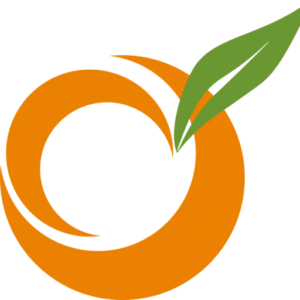At Level343, we have some people who grew up without the Internet. We have some who were kids when the Web was first introduced. We even have some who have never been without. No matter the time it came into our lives, however, the Internet has always seemed like a wonderland of information. We’re a small, diverse group, but we all have a yearning to expand our knowledge, meet new people, and grow in our personal views.
What about you? Do you get online and read the news to find out what’s happening in the world? Do you search for information to gain more of an understanding about subjects? Do you like to meet new people and explore other mind sets? We use the Internet on a daily basis to expand our horizons and grow as a business and as individuals. Do you?
If so, please read on – because the amount of information you view is a lot smaller – and less broad – than you think… and it may get smaller.
The Circle of “I” – What You Are is What You Read
In May of this year, Eli Pariser spoke at TED (Technology Entertainment and Design) and brought a very salient point to the attention of thousands. Thousands, when millions use the Internet. The point?
We, by the very links we click on and queries we search for, cause a self-imposed censorship on our personalized results.
-And personalized doesn’t mean just logged in results. It means results. Period. Eli mentions that Google uses 57 signals to personalize your results. Most, if not all, do not rely on you being logged in to the search engine. A recent Stone Temple interview of Jack Menzel, Product Management Director for Google Search, further reinforces how much our results have changed. There is no standard search result anymore.
The interviewer, Eric Enge, ask, “Do you need to be logged in to get personalized results?”
To which Menzel replies, “Being logged in is the best way to get personalized results. We do a certain amount of personalization for people who are not logged in.”
Later, Enge asks, “Does appending to the end of a search result URL still turn off personalization as it used to?”
Menzel: “Yes it does work. It turns off “personalization”. However it isn’t really useful because people assume that it then will show them what everyone else sees. That simply isn’t the case. There are a whole lot of contextual factors that make everyone’s results most relevant to them. This takes most of the wind out the sails of these types of analysis.”
Eli, in the 9 minute TED video, Beware online “filter bubbles”, uses an excellent example of this “certain amount of personalization” using a search for Egypt. One friend searched for Egypt (no quotes, no modifiers) and received a list of the current unrest in the region. Another, using the same search, was provided nothing more than typical tourist information: Wikipedia, TourEgypt, Egypt Daily News, etc.
Your Daily, Filtered, Self-imposed, Censored Results
So, what does this mean? It means if you don’t do as Menzel suggests in the interview and set your web browser to block cookies, your search results are only as broad as you are. If, for example, you’re a liberal, your results will sooner or later filter out conservative views and vice versa. If you tour the world and frequently search for travel information, you may not see the issues that are happening in these countries.
Why? Because your daily searches tell the personalized results these things aren’t relevant to you. In other words, if you’re not actively working to expand your horizons by searching for a variety of opinions, information, and so on, there will be no expansion. You have to initiate it. You have to work for it. You have to insure that your searches cover a broad set of topics and points of view. Otherwise, the information served up from the Internet will offer you nothing but what you already have – your own small set of interests, ideas and points of view.
Some of you may think, “Awesome. I’m tired of seeing all this liberal/conservative crap coming across my screen. How great this’ll be; I don’t have to ignore it, because I won’t see it.” (We’re picking on political parties here, simply because they’re often some of the most gung-ho about the opposite sides). Yet, without being able to see the other side’s point of view, you might miss important things, like more active censorship…
Protect IP Act and SOPA – Government Censorship Made More Real
Opinionated, bull-headed women that we are, the women that comprise the Level343 team work hard not to let our personal political views color our online interactions. We seldom publicly complain about the things that irk us in the political arena, and generally keep our heads above the fray on the Article Archive. Yet, when it comes to things like the Protect IP Act and SOPA, it’s hard to keep our mouths closed. So, we won’t.
September 2010, the idea of a censor-free Internet came under attack with U.S. Senate Bill S.3804, or COICA (Combating Online Infringement and Counterfeits Act). COICA failed to pass; the bill was reintroduced under a different name, with the same bullshit. In fact, there are now two, count them – two – bills in motion.
November 16th, the Protect IP Act (Preventing Real Online Threats to Economic Creativity and Theft of Intellectual Property Act of 2011; U.S. Senate Bill S. 968) came under Congressional hearing. At the same time, so did SOPA (Stop Online Piracy Act, U.S. House Bill H.R. 3261). It must have taken them a long time to come up with those titles…
S.968 is “a bill to prevent online threats to economic creativity and theft of intellectual property, and for other purposes.” H.R. 3261 is an Act created “to promote prosperity, creativity, entrepreneurship, and innovation by combating the theft of U.S. property, and for other purposes.”
Basically, these Acts are being pushed through the House and Senate to protect copyright infringement. Sounds good, right? Who wants their stuff kiped? Yet, under the big bold print is a whole bunch of fine print that falls in the “and for other purposes” section of the official summary…
If these Acts are passed, the U.S. Department of Justice will have the power to seek court orders that will:
- Stop online ad networks from doing business with foreign sites accused of helping copyright infringement
- Stop online payment processors from doing business with foreign sites accused of helping copyright infringement
- Order search engines to stop providing links to these sites
- Order domain name registrars (you know, those you buy your domain from) to remove the sites
- Order Internet service providers to block the sites
SOPA allows people who hold copyrights the ability (through court orders, of course) to do the same, with the ability to target U.S. sites and services as well.
“Well,” you might think, “what’s so bad about that?” After all, we’re talking about sites that steal content, offer fake products, allow pirating and so on, right? Yes. But – we’re also talking about:
- Twitter, which offers completely uncensored user-generated content, including links to…
- YouTube, which often has videos of everyday people singing songs – which are copyrighted…
- Ebay, where people resell products they’ve legitimately paid for and no longer want
- Any website that offers any type of user generated content
User Generated Content Runs the Web
Let’s be blunt. This is censorship beyond burning heretical books. These Acts threaten crowd sourcing, open source initiatives, freedom of expression, social interaction and innovation. It enables companies in the entertainment industry (watch the video quick before it gets taken down), as well as others, to dictate what’s allowed on the Web and what isn’t. With this in mind, it isn’t surprising why the Screen Actors Guild, Directors Guild of America, American Federation of Musicians, Independent Film and Television Alliance, and the Motion Picture Association of America are all on the list of heavy SOPA supporters.
Yet, as understandable as it is that one might want to combat online piracy, unbridled censorship isn’t the only issue. PROTECT IP and SOPA also threaten cyber security:
“PROTECT IP would empower the Department of Justice, with a court order, to require operators of DNS servers to take steps to filter resolution of queries for certain names. Further, the bill directs the Attorney General to develop a textual notice to which users who attempt to navigate to these names will be redirected. Redirecting users to a resource that does not match what they requested, however, is incompatible with end-to-end implementations of DNS Security Extensions (DNSSEC), a critical set of security updates. Implementing both end-to-end DNSSEC and PROTECT IP redirection orders simply would not work. Moreover, any filtering by nameservers, even without redirection, will pose security challenges, as there will be no mechanism to distinguish court-ordered lookup failure from temporary system failure, or even from failure caused by attackers or hostile networks.
“This secure authentication is critical for combating the distribution of malware and other problematic Internet behavior. Authentication flaws, including in the DNS, expose personal information, credit card data, e-mails, documents, stock data, and other sensitive information, and represent one of the primary techniques by which hackers break into and harm American assets.” (Whitepaper: Security and Other Technical Concerns Raised by the DNS Filtering Requirements in the PROTECT IP Bill)
This is not a small issue. This isn’t something that can, or should be, swept under the rug. Everyone will be affected if these bills are allowed to pass. Many of the sites you use on a regular basis, guaranteed, will be negatively affected in some way, shape or form.
If we look the other way, what will happen to the dreams of millions of people? What about the kids who want to be singers and use YouTube to publicize, or the people who want to be entrepreneurs and use EBay as a jumping off platform? What about the millions of people who want to learn how to improve their lives and do so through user generated content?
They’ll be buried under censorship and control. In short, dear readers, those dreams will disappear because the entertainment industry isn’t happy with the piddly billions of dollars they bring in on a yearly basis. How much money is our freedom really worth?
Exercise the freedom of the Internet and expand your horizons away from the circle of “I”. Research the SOPA and PROTECT IP bills; find out more about them. Find out what’s happening to YOUR Internet.
Further Reading:
- CNet – How SOPA would affect you: FAQ
- Read Write Web – Infographic: Effects of the Internet Blacklist (SOPA)
- Matt Cutts Blog – Progress against SOPA
- O’Reilly Radar – Congress considers anti-piracy bills that could cripple Internet industries
- Electronic Frontier Foundation – SOPA: Hollywood Finally Gets a Chance to Break the Internet




































5 Responses
I had Barbie and paper dolls when I was a kid. I can’t believe six-year-old kids today have iPads and cellular phones on hand. The world is going through a revolution. Can Internet undergo a censorship? That’s a big issue.
I feel lucky to find your article one of best in my opinion.
LOLOL We’re not always mind you. But when it comes to this topic. Hellooo I can’t imagine why people aren’t shocked by what’s going on? *sigh Like everything else in this country they always seem to be the typical sheep to the slaughter house. Then all of a sudden when they see how it affects them personally they go out & march!!! Pfffft
Besides extracting information and understanding about the importance and impact of the Internet I never gave much thought on censorship and maybe it was because of the freedom of expression exercised through the Internet. The freedom of the Internet means more freedom and its very crucial to think about, how much money is our freedom really worth?
Indeed, not just online… but out here with the military. So many laws are being passed right under our noses. Enjoy your week, and thanks for your input.